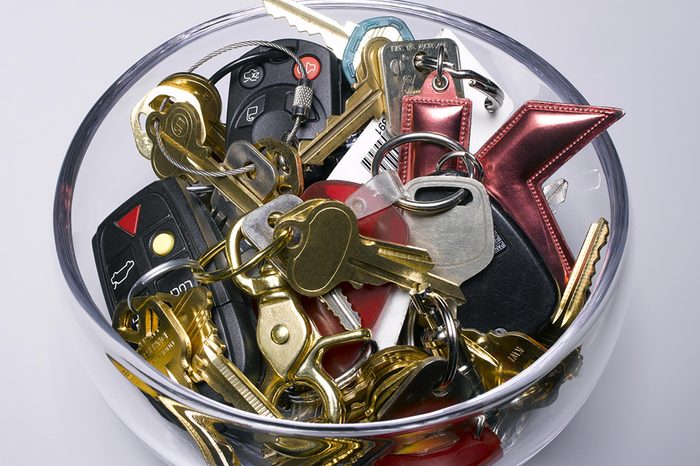
Give everything a home
One of the reasons stuff tends to get lost is that it doesn’t have a dedicated home. To prevent losing your keys or your purse, designate a special spot where you’ll put them each day when you arrive home. It could be a bowl on the counter or a hook by the door. By getting into this habit, you’ll know exactly where to look for the item when you need it. Other members of your household will also get into the habit of utilizing this dedicated space and should they happen upon the object outside of its normal place in your home, they’ll return it. Organization zones are a super-simple but extremely effective way to keep track of everyday objects. Don’t miss these 26 secrets personal organizers would never tell you for free.
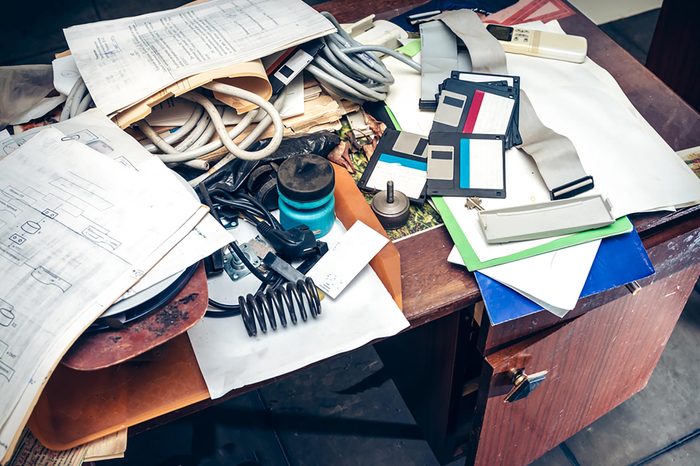
Banish clutter
The less clutter present in your home, the fewer “hiding places” there are for missing objects. If you keep a well-organized home, it’s easy to spot any object out of its place. Minimizing piles of papers, collections of mismatched items such as toys or office supplies, will help cut the time required to find any missing items as well.
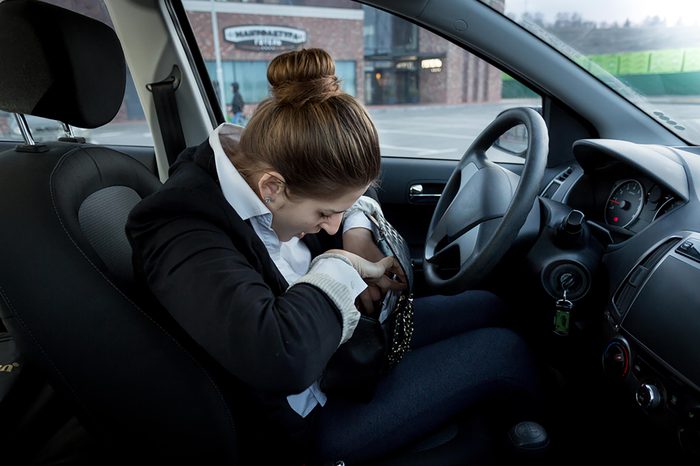
Narrate your actions
According to Michael Solomon, author of How to Find Lost Objects, taking a moment to make a note in your subconscious of where you place an item will help set a reminder for the next time you go looking for it, especially if it’s a temporary spot. Go ahead and say out loud, “train pass is on the console,” and your subconscious will remind you of that when you’re ready to grab it.
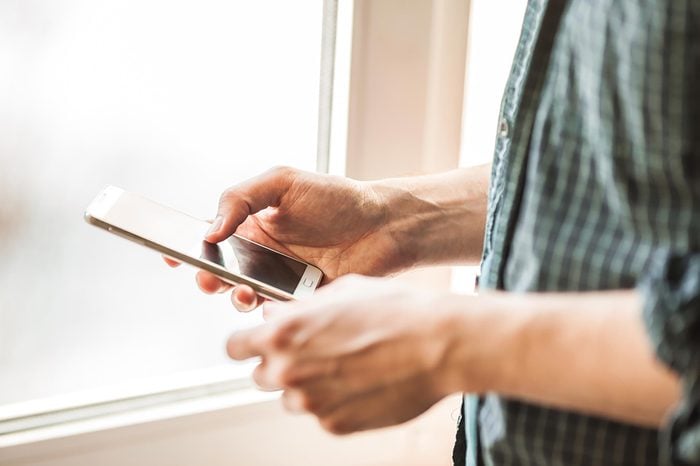
Keep the ringer on
Cell phones are a commonly misplaced item. The easiest way to find your missing cell phone is to call it from another line. But if the phone is set to silent, this strategy is all but useless. The concept applies to other objects as well: For your keys, consider a jangly key chain. For important papers, perhaps a brightly colored file folder in which to store them. Providing sound and visual signals for yourself will keep those items from slipping easily into the background.
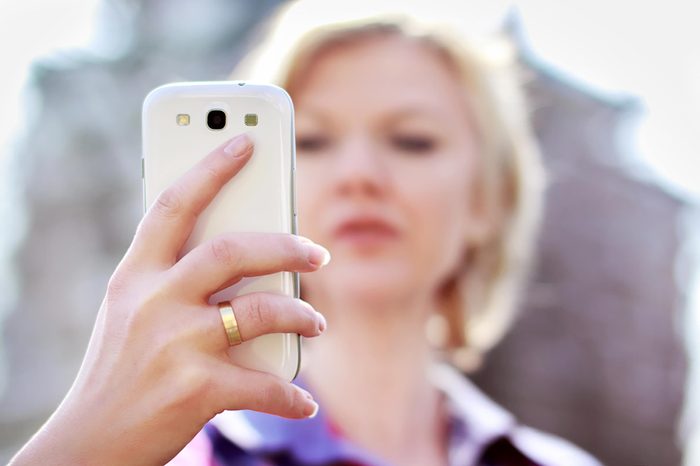
Use technology
There are now several nifty products designed to help us keep track of our belongings. Tile is a BlueTooth tracking device that can be attached to any of a number of objects. If you lose the item with Tile attached, you can find it on a map and even make it ring when you get closer. There’s even a slim version to put in your wallet. Finding apps including the Find My iPhone app can be used from your desktop to locate your phone using BlueTooth technology, as well. You can also move your information to the Cloud if you’re concerned about security.

“It’s not lost, I am!”
In his book, Solomon lays out 12 principles for finding any lost object. He argues that when we’re searching for something, we get into a panic and stop thinking clearly. “The problem is with you, not the object,” he says. In order to be successful at locating a lost item, Solomon suggests taking a moment to consider that the object may be exactly where we put it.

Remember the three c’s: Comfort, calm, confidence
This is the third of Solomon’s principles: In order to be in the right state of mind for successfully finding a lost item, take a moment to gain comfort before launching a search. This could mean sitting down and taking a few deep breaths. Calmness is also key, so making a cup of tea or just waiting until the panic passes is also a good idea. Finally, in order to find the lost object we must have confidence in our abilities. Without that, we will all too easily slip back into frustration mode. “Don’t even begin looking until you have achieved that state of mind,” Solomon says. Only searching while in a certain mood is one of the little things that clutter-free people always do.

Search smart
If you’re in the proper state of mind as outlined in the three C’s, searching wisely will be easier. Plan out how you will search for your item. Instead of frantic shuffling, go systematically room by room, starting with the last place you remember using the object. Also make sure to check wherever the proper place is for that item (like your coat on the coat rack, your umbrella in the umbrella stand) in case you just don’t remember putting it back, or in case someone else in your household has put it back for you. Retrace your steps since you last saw the object.
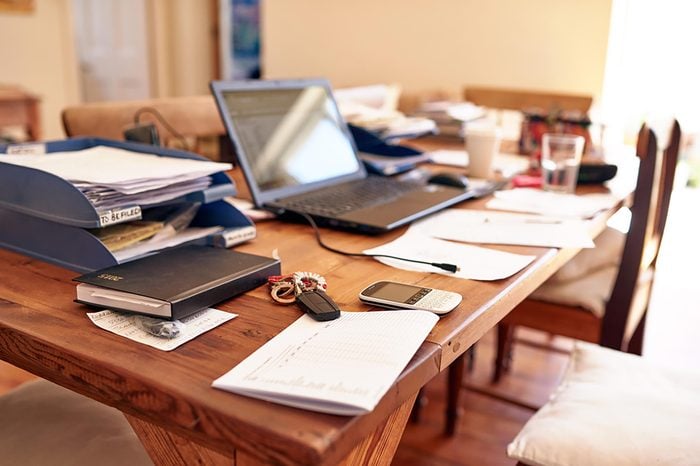
Remember the Eureka Zone
According to Solomon, lost objects are typically found within what he refers to as the Eureka Zone, defined as an 18-inch radius of an object’s proper placement. Perhaps you’ve lost a book that got shoved from its spot on the shelf when another one was replaced. Maybe the cat knocked your favorite pen off of your desk and it has rolled underneath. Solomon recommends searching this 18-inch radius meticulously, making sure to lift every item in case your lost object happens to be nearby. Losing belongings can be a panic-inducing event, but by taking the proper precautions as well as following a set plan, you can eliminate a great deal of stress and find your needed items with great success.
By the way—if you have a habit of losing your keys, this key finder will make it easier to find them.
